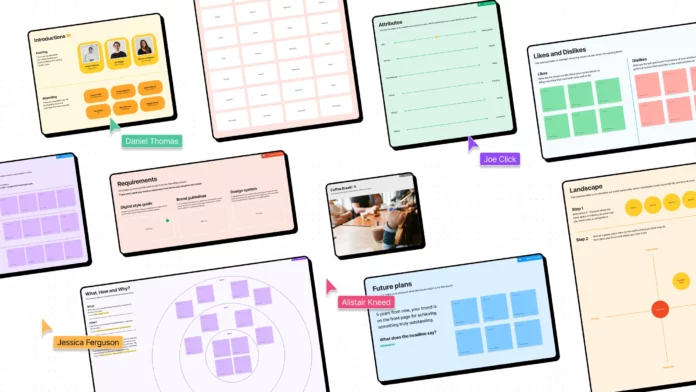In the ever-evolving landscape of business, establishing a strong brand identity is paramount. A well-crafted brand not only distinguishes your company from the competition but also fosters customer loyalty. One powerful tool that businesses utilize to shape their brand is the brand workshop. In this article, we’ll delve into the intricacies of running a brand workshop effectively, providing you with invaluable insights to help your business thrive.
Introduction
A brand workshop is a collaborative and strategic exercise that allows a company to define and refine its brand identity, messaging, and positioning. This interactive session brings together key stakeholders, employees, and creative minds to align on the brand’s vision and values. When executed correctly, a brand workshop can lead to enhanced brand recognition, improved customer perception, and ultimately, increased revenue.
The Importance of Brand Workshops
Before we delve into the nuts and bolts of conducting a brand workshop, it’s crucial to understand why these sessions are vital for your business.
Clarity of Vision
A brand workshop provides a platform for all team members to articulate their understanding of the company’s mission, vision, and values. This collective clarity ensures that everyone is on the same page, fostering a sense of purpose within the organization.
Consistency in Messaging
Consistency is key when it comes to brand communication. A well-run workshop helps ensure that your brand’s message remains uniform across all channels and touchpoints, reinforcing brand trust and recognition.
Competitive Edge
In a saturated market, standing out is essential. A brand workshop allows you to identify your unique selling propositions (USPs) and leverage them effectively against your competitors.
Employee Engagement
Inviting employees to participate in a brand workshop not only empowers them but also fosters a deeper connection to the brand. Engaged employees are more likely to be brand ambassadors, promoting the company’s values and mission.
Steps to Run a Brand Workshop Effectively
Now that we’ve established the importance of brand workshops let’s break down the process of conducting one successfully.
Define Objectives and Goals
Start by clearly outlining the objectives and goals of the workshop. What do you aim to achieve? Are you looking to redefine your brand’s identity, reposition it in the market, or simply refine its messaging? Define your purpose to set the tone for the workshop.
Assemble the Right Team
Select participants carefully, ensuring representation from various departments, including marketing, sales, customer service, and even frontline employees. Diverse perspectives can lead to richer discussions and insights.
Pre-Workshop Research
Before the workshop, conduct thorough research on your industry, competitors, and market trends. This data will provide a valuable context for your discussions and help participants make informed decisions.
Workshop Facilitation
During the workshop, a skilled facilitator plays a pivotal role. They guide the discussions, ensure everyone has an opportunity to voice their opinions, and keep the proceedings on track. The facilitator should be impartial and skilled in managing group dynamics.
Exercises and Activities
Engage participants with interactive exercises and activities designed to spark creativity and encourage innovative thinking. Some popular exercises include brand personality assessments, SWOT analysis, and customer persona creation.
Brainstorming and Ideation
Encourage open and constructive brainstorming sessions. This is the time for participants to share their ideas and vision for the brand’s future. Remember, no idea is too far-fetched during this stage.
Define Brand Elements
With the insights gained from brainstorming, work together to define the core elements of your brand, including its mission statement, vision, values, and personality traits.
Develop a Brand Strategy
Once the brand elements are defined, outline a comprehensive brand strategy. This should encompass messaging guidelines, target audience profiles, and a content strategy that aligns with your brand’s identity.
Implementation Plan
Devise a clear plan for implementing the newly defined brand strategy. Assign responsibilities and set timelines to ensure a smooth transition into the new brand identity.
Measurement and Feedback
After implementing the brand changes, regularly measure their effectiveness and gather feedback from employees and customers. Make necessary adjustments to refine your brand continually.
Benefits of a Well-Executed Brand Workshop
Running a brand workshop effectively yields several benefits for your business, including:
Enhanced Brand Consistency
A well-defined brand strategy ensures that every communication aligns with your brand’s core values, creating a consistent and coherent brand image.
Improved Employee Engagement
Engaged employees who understand and connect with your brand are more likely to be enthusiastic advocates both within the organization and to external audiences.
Increased Customer Loyalty
A strong brand identity resonates with customers, fostering loyalty and trust. When customers feel a connection to your brand, they are more likely to remain loyal and refer others.
Competitive Edge
A refined brand strategy helps your business stand out in a crowded marketplace, attracting and retaining customers in an increasingly competitive environment.
Additional Resources
By exploring these resources, you can gain further insights into the intricacies of brand workshops and the broader realm of brand management.
In the ever-evolving landscape of business, a well-executed brand workshop is a beacon of clarity, creativity, and cohesion for your brand. Embrace the process, harness the power of collective creativity, and watch your brand flourish in the hearts and minds of your audience. Remember, your brand is not just what you sell—it’s the story you tell, and a brand workshop is the canvas upon which that story is crafted and refined.
Additional Insights and Best Practices
Before we conclude, let’s explore some additional insights and best practices to help you run a brand workshop effectively and achieve the best possible outcomes.
Keep the Customer at the Center:**
Throughout the workshop, consistently remind participants of the customer’s perspective. Encourage discussions on how your brand can better serve its audience and meet their needs. A customer-centric approach is key to building a brand that resonates.
Flexibility is Key:**
While it’s important to have a structured agenda, be prepared to adapt and pivot as needed during the workshop. Sometimes the most innovative ideas emerge from unexpected directions. Be open to exploring uncharted territory.
Document Everything:**
Assign someone to document the workshop’s discussions, decisions, and action items. This documentation will serve as a valuable reference point for future brand-related initiatives and help maintain continuity.
Include External Perspectives:**
Consider inviting external experts or consultants to provide fresh insights and an unbiased view of your brand. They can bring valuable industry knowledge and best practices to the table.
Follow Up with Action Items:**
After the workshop, ensure that action items and responsibilities are clearly defined and assigned. Regularly review progress to ensure that the decisions made during the workshop are implemented effectively.
Engage in Iteration:**
Recognize that brand development is an iterative process. As your business evolves and market dynamics change, revisit and refine your brand strategy as needed to stay aligned with your goals.
Empower and Educate Employees:**
Provide training and resources to employees to help them understand and embody the brand’s values and messaging. A well-informed team is more likely to consistently represent the brand.
Stay Consistent Across Channels:**
Ensure that the brand identity, messaging, and tone developed during the workshop are consistently applied across all marketing channels, from your website and social media to printed materials and customer interactions.
Measure Success Metrics:**
Establish key performance indicators (KPIs) to measure the success of your brand initiatives. Regularly analyze these metrics to gauge the impact of your brand on business outcomes.
Celebrate Milestones:**
Recognize and celebrate achievements related to your brand strategy. Whether it’s a successful product launch, a positive customer review, or an increase in brand awareness, acknowledgment motivates teams and reinforces the importance of brand alignment.
In conclusion, running a brand workshop effectively is not just a one-time event; it’s an ongoing commitment to nurturing and refining your brand. Embrace the process, leverage the insights and best practices outlined in this guide, and remember that your brand is a dynamic entity that evolves with your business and its audience. By investing in the development and maintenance of a strong brand identity, you position your organization for long-term success and enduring customer loyalty.
In the dynamic landscape of business, a well-executed brand workshop serves as a compass, guiding your brand toward success and resonance in the hearts and minds of your audience. Embrace the journey, empower your team, and watch your brand thrive as it continues to evolve and adapt in an ever-changing world. Your brand is not just a logo; it’s a reflection of your values, and a brand workshop is the crucible in which those values are refined and solidified.
Conclusion
As we conclude this comprehensive guide on running a brand workshop effectively, it’s essential to emphasize that the process of defining and refining your brand is not a one-time endeavor. The business landscape is constantly evolving, and your brand must evolve with it to remain relevant and competitive.
By fostering a culture of adaptability and continuous improvement, your brand can stay aligned with the ever-changing needs and expectations of your target audience. Regularly revisit your brand strategy, engage in follow-up workshops, and remain receptive to feedback from both internal and external sources.
In today’s fast-paced business environment, a well-executed brand workshop is a powerful tool for keeping your brand’s identity fresh, relevant, and resonant with your audience. With the right approach and commitment to the process, you can ensure that your brand not only stands the test of time but also thrives in an increasingly competitive marketplace.
In conclusion, the journey to building and maintaining a strong brand is an ongoing one, and a brand workshop is a vital waypoint on that journey. Embrace the process, engage your team, and always keep the customer at the center of your brand strategy. By doing so, you’ll not only run brand workshops effectively but also lay the foundation for sustained success in the dynamic world of business.







